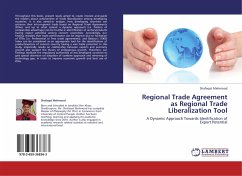This study intends to explain the importance of the concept of "managed liberalization" to Southern and Eastern Africa. Whether a country achieves sustainable increase in per capita gross domestic product of its citizens depends on an efficient use of its productive capacities and resources. Botswana s, Tanzania s and South Africa s experience demonstrates that markets are of primary importance for the African countries yet, ungoverned markets tend to deepen social inequalities, which is rather undesirable in the context of chronic poverty. The markets can perform better if activist, developmental state prepares the conditions for it, that is, removes income poverty to facilitate consumption, provides adequate supply of skilled labor and human resources and protects the strategic sectors of the economy. The industrial policy of growth shall not be an inward-looking, passive structural adjustment based on sheer faith in the market, but a strategy consciously directing economic change and transformation through an informed interventionist state.
Bitte wählen Sie Ihr Anliegen aus.
Rechnungen
Retourenschein anfordern
Bestellstatus
Storno








